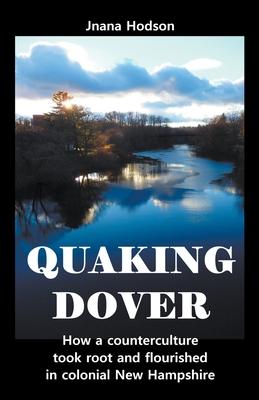The Quaker congregation in what is now Dover, New Hampshire, is one of the oldest in the world, taking root in a northern New England seaport a mere decade after the radical religious movement broke forth in Britain. They wouldn't have called it a congregation, actually, or even a church. For them, as well as their rival Puritans, the church was the people, the body of believers, rather than a building or an organization. For them, their assembly was a meeting, one where the people of faith came together with their God.
This story is mostly about them, but there's no escaping the place itself, which was still frontier when vagabonds brought a disturbing vision to the settlement and changed its course by drawing together a third of its populace as a visible and vocal minority. It wasn't always easy.
In a town already rocked by scandal and unorthodoxy, as well as cultural and political clashes with Puritan authorities to the south, their bold message produced the fifth oldest congregation in the province -- the first one independent of funding by town taxes.
Forget what you've assumed about colonial New England. Tiny Dover embodies an alternative understanding to the course of American history.
